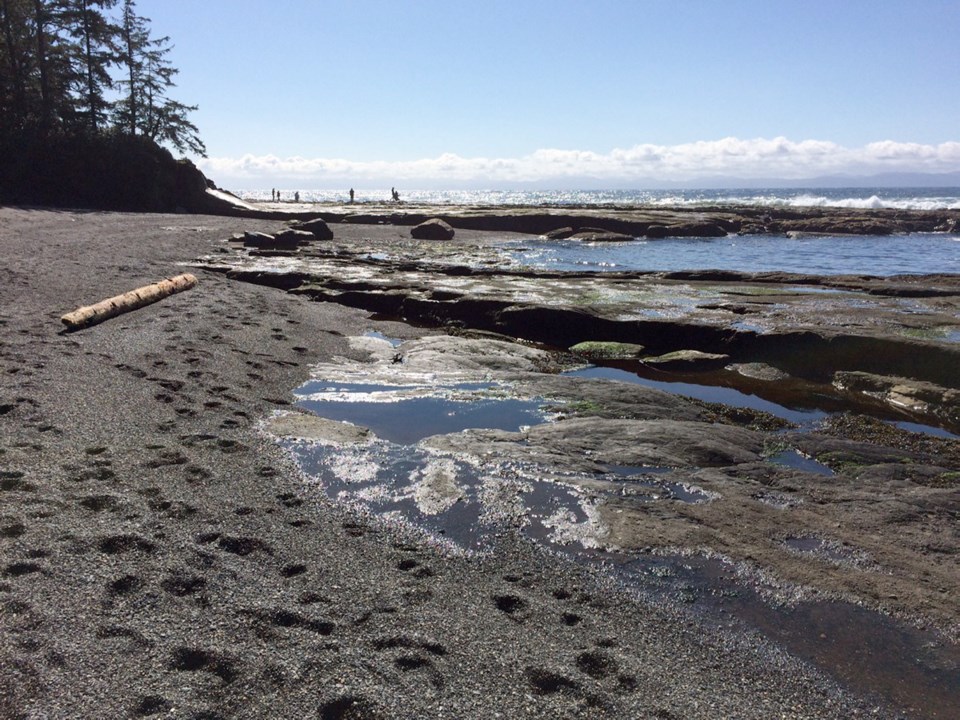The B.C. government has closed six provincial parks on Vancouver Island amid concerns that a spike in visitors was putting people’s health at risk during the COVID-19 outbreak.
Juan de Fuca Provincial Park — including China, Sombrio and Botanical beaches — will close immediately, as will French Beach, Goldstream, Spectacle Lake and John Dean parks.
The closure of Gowlland Tod Provincial Park is restricted to McKenzie Bight and Tod Inlet.
B.C. Parks said police, local governments and members of the public have raised concerns about the increased number of park visitors, many of whom were ignoring directives from provincial health officer Dr. Bonnie Henry to stay at least two metres apart to prevent the virus from spreading.
“The mental and physical wellness benefit of being outside during the COVID-19 pandemic response is important, but keeping people safe right now is the most important thing we can be doing,” Environment Minister George Heyman said in a statement.
“Until we flatten the transmission curve of COVID-19 and people strictly comply with the physical distancing requirement, provincial park access will be restricted.”
Mike Hicks, director of the Juan de Fuca electoral area, warned Monday that the region was being overwhelmed by people visiting the beaches from Sooke to Port Renfrew.
He called on Premier John Horgan to close the parks, noting the region’s food supplies are limited and its emergency services are ill-equipped to deal with increased traffic.
B.C. Parks shut down a number of other parks across the province, including Chilliwack and Shannon Falls parks on the South Coast; Skaha Bluffs in the Okanagan and Liard River Hot Springs in the North.
The park closures follow the shutdown of park services and facilities, including visitor centres, nature houses, washrooms and day-use areas.
All campgrounds are closed until April 30.
As well, the Ministry of Forests has closed its campgrounds and amenities in response to the oubreak.
Parks Canada has imposed similar restrictions at national parks and historic sites, after visitors flocked to them on the weekend.
The federal agency said it’s still noticing lots of visitors, despite the suspension of services and facility closures last week.
Officials are now suspending motor-vehicle access, starting today, until further notice.
“I know this weekend was quite beautiful across our great country, which leads many families to spend time outdoors in our parks and our heritage sites,” Environment Minister Jonathan Wilkinson, who is responsible for Parks Canada, said Tuesday in a video posted on YouTube. “We saw visitation rates soar.”
Similar concerns have been raised in communities within or near national parks.
The Alberta towns of Banff and Canmore, which is just east of Banff National Park’s gates, saw visitors crowding their main streets. That led to concerns from residents that visitors were increasing the risk of COVID-19 spread in places with limited health-care facilities.
Wilkinson said crowding on trails and at day-use areas in national parks and historic sites is also unsafe because of the increased transmission risk.
Wilkinson said the restriction on vehicles includes parking lots and trailheads at all national parks, national historic sites and national marine conservation areas.
Last week, Ontario closed its provincial parks until April 30 to protect the health of employees and visitors. That included putting up gates at park entrances and locking buildings.
— with a file from The Canadian Press



